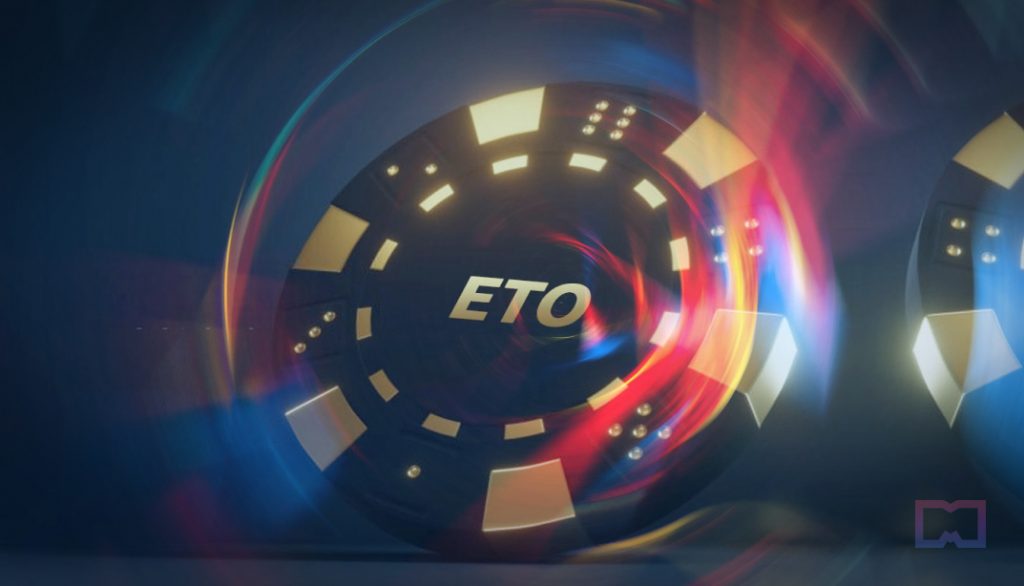An informative introduction to equity token offerings (ETOs) in 2023
In Brief
Using equity token offerings (ETOs) presents numerous advantages compared to conventional fundraising strategies like IPOs or venture capital investments.
These innovative platforms enable businesses to execute regulatory-compliant ETOs while also offering investors a dependable and secure investment avenue.

Equity tokens consist of multiple blocks serving as certificates that exist on the blockchain. They facilitate the issuance of tokens that carry distinct names and values. Furthermore, equity tokens empower businesses to gather funds by selling ownership rights rather than just equity. debt or stocks .
With the emergence of blockchain With growing interest in blockchain technology, equity token offerings (ETOs) are gaining traction as a viable fundraising method. Similar to initial coin offerings (ICOs), ETOs allow companies to collect capital by selling their issued tokens.
Choosing ETOs over traditional fundraising methods like IPOs or venture capital offers companies the advantage of reaching a broader investor base due to a streamlined and straightforward funding process. At the same time, investors gain access to a diverse array of investment options, as businesses now leverage equity tokens for multiple sectors and applications.
What is an equity token offering?
An equity token offering (ETO) represents a modern avenue for businesses aiming to secure funding and make their market debut. Through an ETO, companies can raise capital by issuing digital tokens that signify ownership stakes—similar to stock shares in conventional Initial Public Offerings (IPOs). Instead of relying solely on financial institutions or venture capitalists for funds, businesses utilizing ETOs can directly invite investments from the public.
Equity tokens are issued through blockchain technology, which enables organizations to create and manage digital securities with superior flexibility and efficiency in comparison to traditional avenues. In an equity token offering, investors can acquire tokens in exchange for cryptocurrencies or fiat currencies such as US dollars. These tokens are then tradable on blockchain-based exchanges, allowing transactions akin to stock trading.
Why were equity tokens created?
Equity tokens emerged as a novel fundraising mechanism primarily in response to the rampant fraud seen during ICOs. One of their key attributes is that they confer a level of ownership to investors, allowing for trading in secondary markets. This structure instills a sense of security among investors, granting them oversight of their investments and the ability to sell or transfer equity tokens whenever they wish.
Equity tokens can be provided through both public and private channels. A public offering welcomes all investors, while a private offering is restricted to accredited participants.
Given the escalating risks associated with fraud within the crypto industry, it's advisable for companies contemplating an ETO to consult with legal experts and engage with reputable advisors to ensure adherence to regulations.
How are equity tokens distributed?
One strategy for issuing this type of security token involves tokenizing a company’s assets for the purpose of raising capital. A security token offering (STO) enables companies to release equity tokens that are supported by real assets such as stocks, bonds, and real estate. This can significantly mitigate risks for investors, as they would hold some level of ownership or rights to these fundamental assets.
Public offerings for equity that has been tokenized
Public offerings of tokenized equity afford investors a more streamlined process for liquidating their investments and offer heightened transparency, with every transaction being meticulously logged on the blockchain.
Private token sale
In contrast to public offerings, private token sales target only accredited investors. This model can also help circumvent regulatory scrutiny and prevent fraudulent behaviors. Nevertheless, this approach can limit participation for many prospective investors who may not meet the accreditation criteria or have the necessary funds to take part in an ETO.
The pros and cons of equity tokens
Pros of equity tokens
Investors are drawn to equity tokens largely due to their regulatory framework, bearing similarities to conventional stock, thereby making them an attractive investment option.
Moreover, equity tokens boast enhanced liquidity, enabling investors to effortlessly trade their tokens on secondary markets. Additionally, these tokens expand the potential investor base, as they can be exchanged globally without geopolitical or regulatory hindrances.
Cons of equity tokens
Despite the numerous advantages associated with equity tokens for fundraising, there are also inherent challenges. A significant concern is the prevailing lack of regulation in the cryptocurrency sector, which could open doors to scams and fraudulent activities. Furthermore, equity tokens might suffer from heightened volatility, influenced by unpredictable market trends and speculative behaviors which can cause price fluctuations for short-term gains.
Next steps
While investing in ETOs offers a legitimate pathway to funding for blockchain initiatives, there currently aren’t any crowdfunding platforms that adequately cater to the needs of both retail and institutional investors. Developing specialized platforms dedicated to token fundraising appears to be a potential solution.
These tailored platforms can facilitate organizations in conducting compliant ETOs while concurrently providing investors with a trustworthy and secure investment alternative. As regulations in the crypto landscape evolve, it's vital for companies aspiring to leverage ETOs for capital generation to seek expert counsel and collaborate with reliable advisors to ensure they meet compliance requirements.
Equipped with the right tools and resources, businesses can effectively launch equity token offerings and realize their groundbreaking blockchain projects.
A final note
Ultimately, equity tokens represent an innovative and potent method for businesses aiming to raise capital in a transparent and efficient way. By merging the advantages of traditional securities with the promises of blockchain technology, these cutting-edge digital assets are democratizing investment opportunities and broadening access to initial funding.
Related articles:
- The Metaverse: Is it a groundbreaking digital era or a costly financial pit?
- Tencent experiments with NFTs for profile pictures, preparing to unveil an NFT collection along with a virtual music space.
- China's Communist Youth League commemorates its 100th anniversary through NFTs.
Disclaimer
In line with the Trust Project guidelines Please be aware that the information provided on this site does not constitute legal, tax, investment, financial, or other types of advice. It’s essential to invest only what you can afford to lose and seek independent financial guidance if uncertain. For more information, we recommend reviewing the terms and conditions as well as the help and support sections offered by the issuer or advertiser. MetaversePost strives to provide accurate and impartial reporting; however, market conditions may change without notice.







